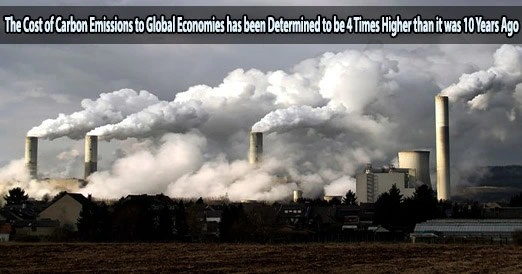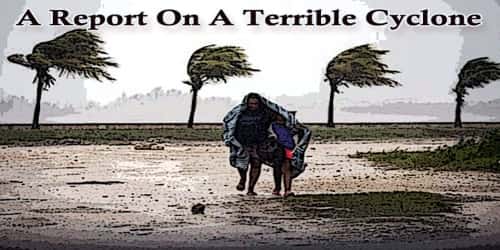According to a recently released report from the University of Sussex Business School, every ton of carbon is now four times more harmful to the globe than it was ten years ago.
The conclusions, which have been published in Nature Climate Change, are based on a thorough examination of four decades of research.
The price economies pay for the atmospheric emission of carbon is known as the “social cost of carbon.” Carbon’s impact on human health and welfare, agricultural production, sea level rise that causes property damage and destruction, desertification, changes in energy consumption, and losses in labor productivity can all be used to estimate the cost.
The study, which used cutting-edge statistical techniques like meta-analysis to analyze over 5,900 estimates from 207 papers published before 2022, discovered that, unlike twenty years ago, when economists tended to support a mild carbon tax, they now need to make the case for a much stricter climate policy. This is partly due to how pessimistic assessments of climate change and its effects have evolved over time.
Therefore, this paper justifies a major strengthening of climate policy than the one that we have in Europe and North America, and calls for other countries, particularly China and India to up their climate game.
Professor Richard Tol
Professor Richard Tol, professor of economics at the University of Sussex Business School, said, “The implications of these findings for climate policy, are significant. The central estimate is that the social cost of carbon becomes 2.2% larger every year. We have found that every ton of carbon is four times as damaging now as it was 10 years ago.”
“The study underscores the need to intensify efforts to reduce greenhouse gas emissions and reassess the appropriate carbon price.”
“There is often a gap between the announced emissions targets and the policies supposed to achieve the targets. Besides raising the social cost of carbon, the recommended carbon price, policy makers should focus on raising the actual price of carbon.”
“Therefore, this paper justifies a major strengthening of climate policy than the one that we have in Europe and North America, and calls for other countries, particularly China and India to up their climate game.”
The researchers note that there are several estimates of the social cost of carbon, and these estimates vary due to various assumptions about future emissions. However, as the reality of climate change creeps in, these forecasts have generally become much more dismal.
For example, climate impacts are unpredictable, and the impacts of moving from 1.5°C to 2°C are much greater than an increase from 0.5°C to 1°C. According to the study, as a result of the impact on everything from agriculture to health, the cost of carbon has increased dramatically.
















